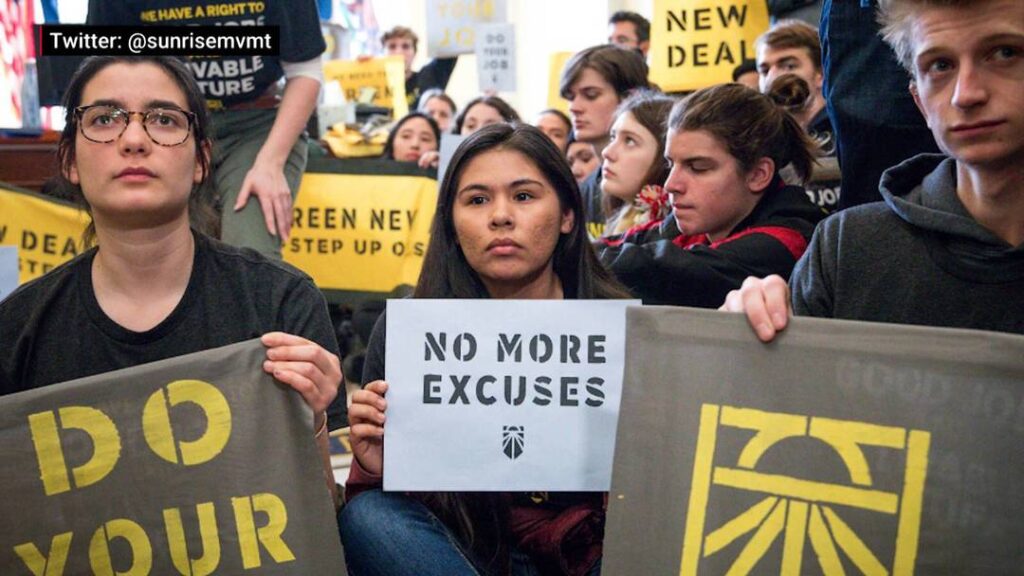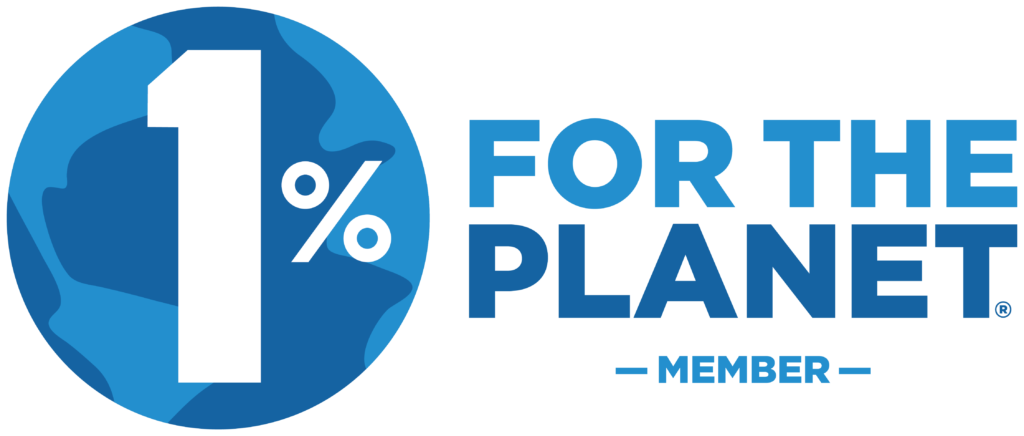Every Day is Earth Day!
- Earth Day is the world's most widely celebrated secular observance, held April 22 every year.
- In addition to celebrating the holiday with community cleanups, donations, and planet-appreciation posts on social media, people can make real climate progress with simple changes at home.
- From turning the temperature down on your showers to eating seasonally, here are six easy ways to celebrate Earth Day all year long.
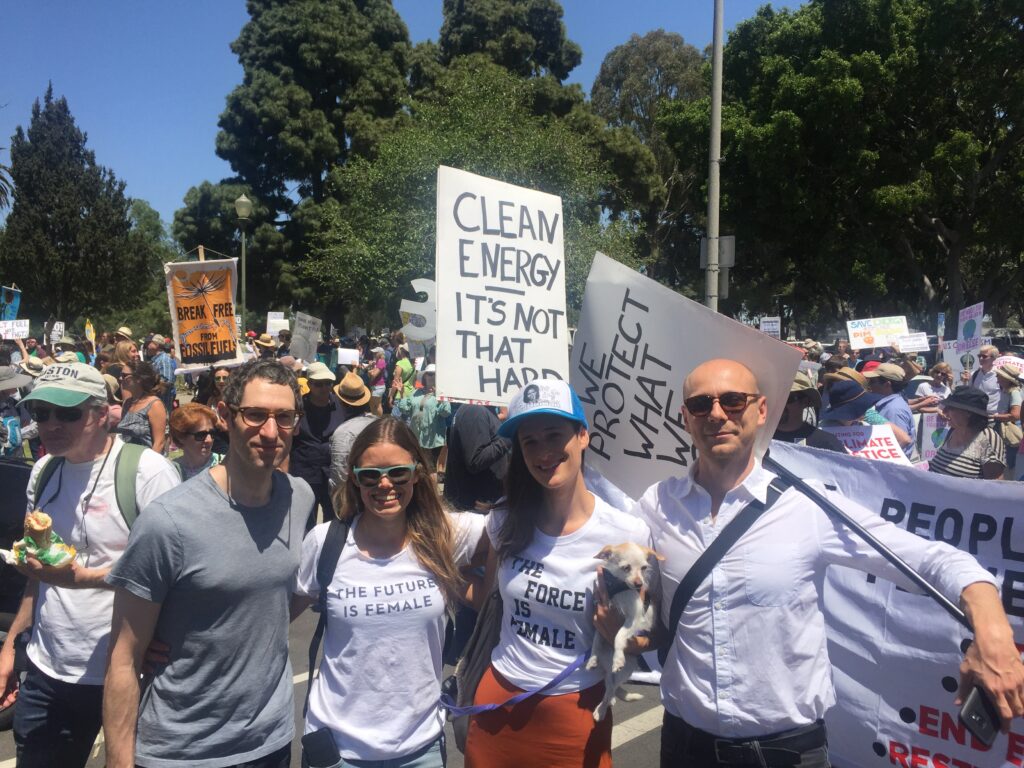
This Earth Day, like every other, big promises and grand gestures will be made as the world rallies around good old Pachamama. It’s been estimated that more than a billion people participate in the holiday, making it the most widely celebrated secular observance in the world.1
When it comes to protecting the planet, many are quick to put the onus on governments and corporations—and, frankly, global pollution, environmental racism, and climate change *are* the result of corporations externalizing catastrophic costs and governments failing to combat systemic corruption. As individuals, we’re faced with broken systems that we did not create, with a climate crisis that simply isn’t our fault.
Don’t forget, though, that individuals drive powerful change with their dollars, their voices, and, of course, their votes. Studies show that 60% of global greenhouse gas emissions comes just from producing and using household goods—and the U.S. happens to be the largest consumer market in the world.
This April 22, join that community cleanup, make that donation, then continue your efforts with these simple acts of sustainability at home.
Go Plastic-Free

OK, so you’re tired of hearing people harp on the “plastic pollution epidemic.” You get it! But did you know that experts predicted a twofold increase in plastic production from 2016 to 2050?2 Despite the professed shift away from virgin plastics, the industry just keeps growing.
It’s time to start thinking beyond reusable water bottles and bringing your own bag grocery shopping. For example, you could buy a metal safety razor, switch to shampoo bars, use a menstrual cup instead of disposable period products, or start requesting your takeout in reusable containers. Wrap leftovers in beeswax, opt for unpackaged produce at the store, and cook more: A UK-based charity called Wrap found that plastic-packaged fruits and vegetables even perpetuate food waste because they force people to buy more than they’ll eat.3
One major way to wean yourself off plastic? Quit fast fashion. Cheap clothes are often made of unsustainable plastic fibers such as polyester and nylon. Besides the impact of production and disposal, these synthetic fabrics generate microplastics that run rampant in oceans.
Switch to Cold Water

Hot-water clothes washing costs you about $60 per year and causes your clothes to fall apart faster.4 This means more clothing sent to landfills, more microplastics in the ocean. Not to mention the 62 million tons of greenhouse gas emissions generated from washing machines, 90% of which is generated just from water heating.5, 6
The same sentiment could be applied to dishwashing and showering. Showers use less than half the hot water that washing machines use, but they still account for a hefty chunk of your utility bill.7 Hot-water showers also waste more water because they heat up as the water runs.
The best solution? Try showering in cold or cool water—which is actually great for circulation and mood.8 If you must take a shower in hot water, the U.S. Department of Energy recommends getting a WaterSense-labeled low-flow showerhead with a maximum flow rate of 2.0 gallons per minute. Use a bucket to collect the water that would be wasted as it’s heating up and recycle it for plant watering, toilet flushing, and cleaning.
Plant a Tree
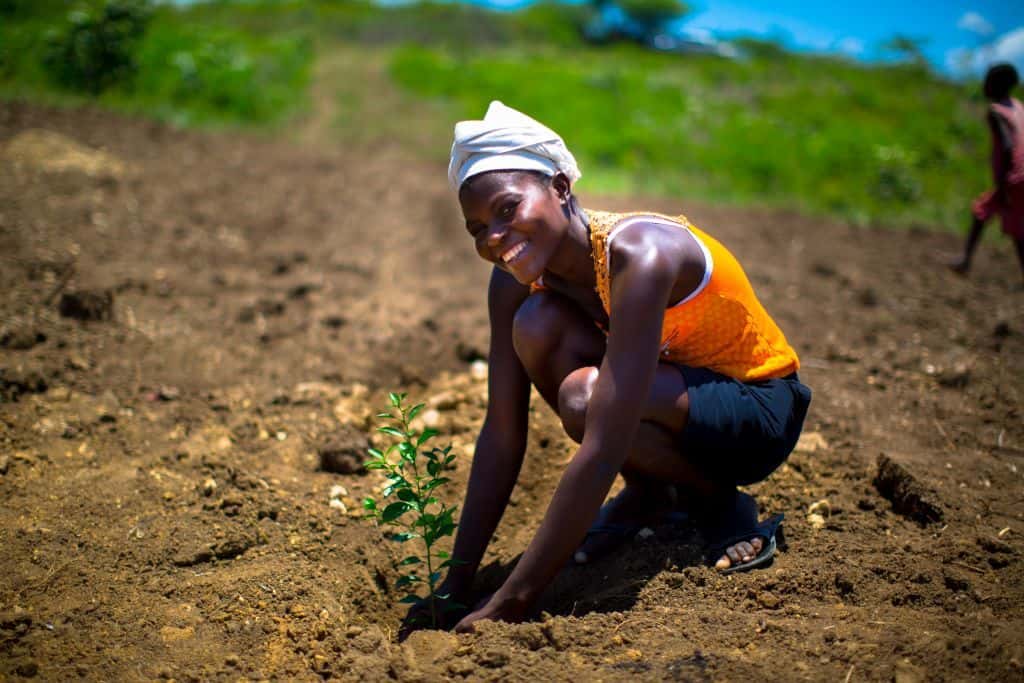
Perhaps the simple act that gets the most attention—and the most flack—around Earth Day is tree planting. Critics of carbon offsetting, for example, argue that tree planting is a cop-out to avoid real emissions reductions. And they would be partially right: Tree planting alone will not save the world.
More important is protecting the standing forests and defending the territorial rights of Indigenous peoples who have stewarded the land for millenia, particularly in the Amazon Rainforest, which is at an ecological tipping point and nearing collapse. Shuki stands in solidarity with Indigenous leaders and scientists in calling for the protection of 80% of the Amazon by 2025. And in the meantime? We support tree planting projects.
In addition to keeping existing forests intact, planting new trees is believed to be one of the most effective ways to sequester carbon dioxide from the atmosphere, ultimately slowing climate change.9 Plant one in your yard and you could attract a variety of native species, improving your area’s biodiversity. Plant a few through an organization such as Click A Tree and you could contribute to large-scale, planet-saving reforestation projects. Experts have said that planting half a trillion trees could capture enough CO2 to reduce atmospheric carbon by 25%.10
Stop Using Harmful Chemicals
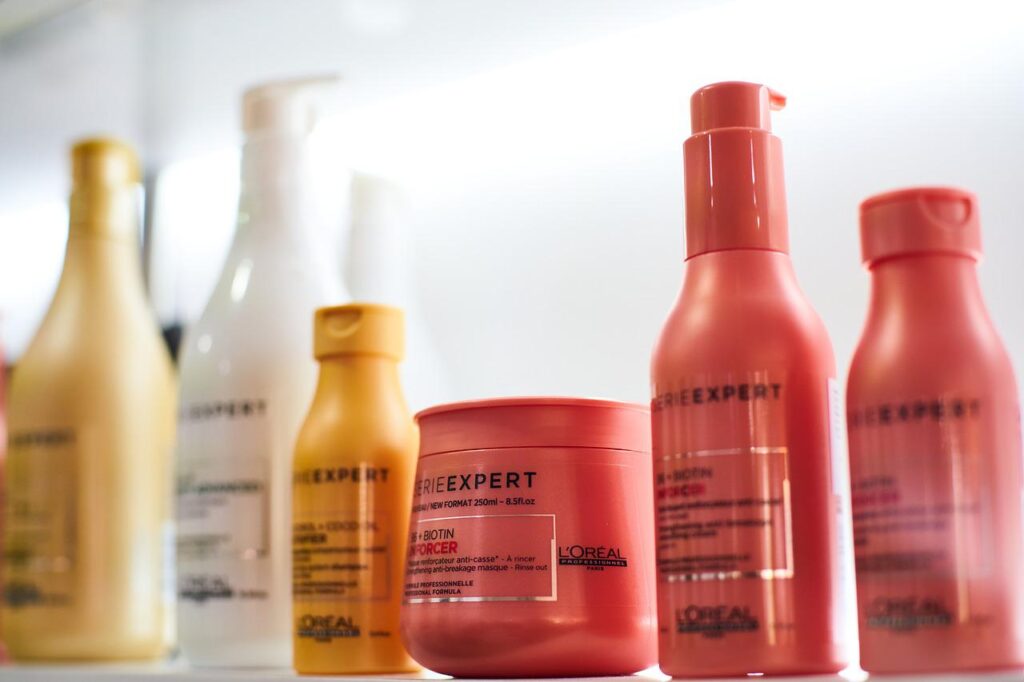
The environmental impact of chemicals is complex and layered. Chemical plants and refineries ooze hazardous air pollutants proven to cause cancer and other serious illnesses.11 Chemicals are used for agriculture, in cleaning and personal care products, to make plastics, and to generate energy (for example, batteries). When they’re used and discarded, they contaminate soil through landfills, water through plumbing systems, and air through incineration.
Oh, and while chemicals work to warm the planet they also hinder our ability to adapt to climate change by altering our metabolism, the mechanism that stabilizes body temperature. This is true for animals, too.12
So, do your best to buy organic. Use the Environmental Working Group’s Skin Deep Cosmetics Database to learn about the chemicals in your beauty products. Shop through a marketplace like Safe & Chic, which uses EWG data to compile the safest and most sustainable products in the industry.
Eat Local + Plant Based
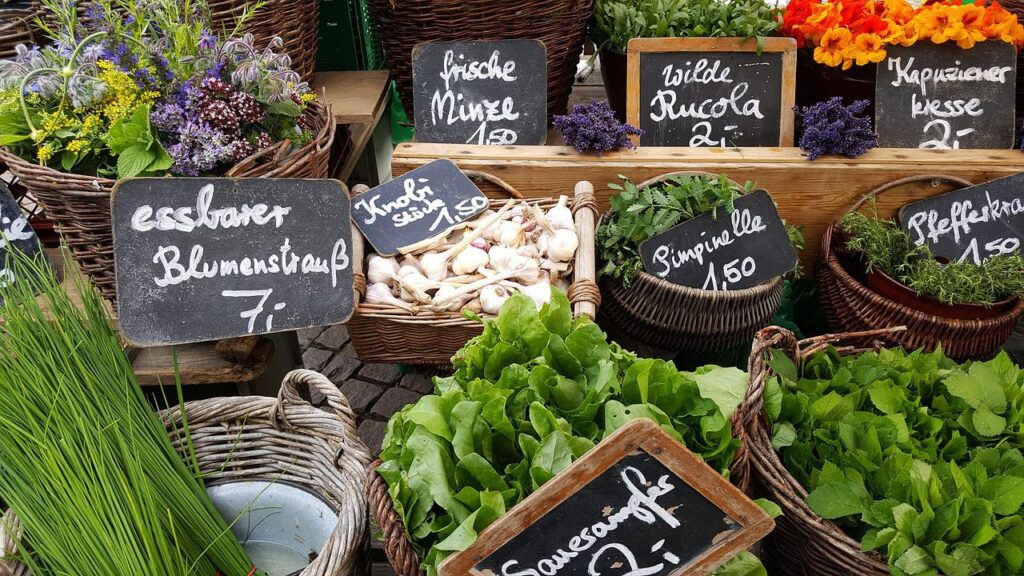
A third of human-generated GHG emissions occur because of food systems. “Food miles” can skyrocket a single avocado’s carbon footprint to more than 400 grams of CO2 emissions.13 Food must be imported from faraway places as long as Americans demand to eat fruits and vegetables out of season.
Eating locally keeps those food miles to a minimum and, ideally, ensures that the agricultural practices used to grow it work with, not against, the environment. As a bonus, supporting local farmers keeps money in your community instead of in the hands of billionaire-led corporations.
And while on the subject of food: You should reduce your meat consumption. Though a widely polarizing topic of conversation, the Intergovernmental Panel on Climate Change points to a plant-based diet as one of the most impactful ways individuals can reduce agricultural emissions.14
Get Politically Involved
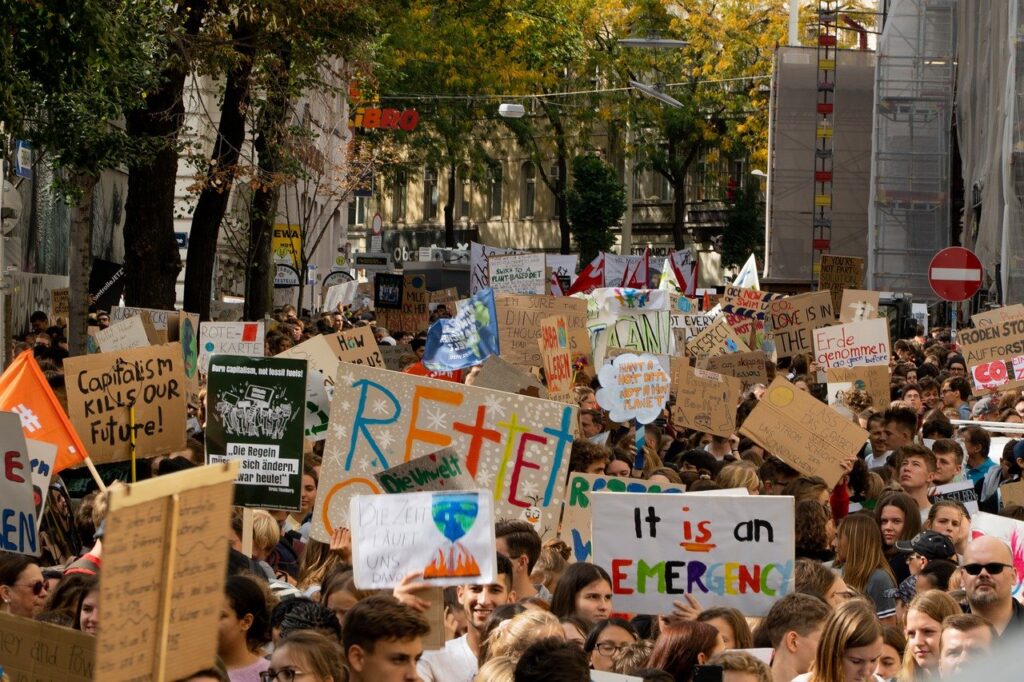
Of course, governments are largely responsible for the safety and health of their people, and most can agree that the U.S. government is categorically not doing enough to mitigate climate change. Thankfully, in a democratic society, individuals have the opportunity to vote for people and issues that take anti-warming efforts seriously. The bottom line: Do not waste that opportunity.
Presidential elections are certainly not the only elections that matter in the U.S. National elections are held every even-numbered year (twice as often as presidential elections), and state and local elections occur annually. Voting in your local elections is the fastest way to see results close to home and the most impactful way to influence policy on a state and national level.
This Earth Day, check the U.S. Vote Foundation for upcoming elections. Every state except Louisiana, Mississippi, New Jersey, and Virginia is holding legislative elections in 2022.
Featured Products and Brands:
- Zero-waste shaving kit from EcoRoots
- Citrus fresh shampoo bar from EcoRoots
- Silicone DivaCup menstrual cup on EarthHero
- Bee’s Wrap reusable beeswax food wraps on Hive
- Click A Tree tree-planting organization
- Safe & Chic clean beauty marketplace
Sources:
- “The History of Earth Day.” EarthDay.org.
- “The New Plastics Economy: Rethinking the Future of Plastics.” World Economic Forum. 2016.
- “Reducing Household Food Waste and Plastic Packaging.” Wrap. 2022.
- “The Best Energy-Saving Hacks You Should Be Using to Save Money Right Now.” SaveOnEnergy. 2021.
- “Laundry: Lightening the Load.” National Geographic.
- “Laundry Best Practices.” Energy Star.
- “Reduce Hot Water Use for Energy Savings.” U.S. Department of Energy.
- “Are Cold Showers Good for You?” Cleveland Clinic.
- Bastin, Jean-Francois, et al. “The Global Tree Restoration Potential.” Science. 2019.
- “Examining the Viability of Planting Trees to Help Mitigate Climate Change.” NASA. 2019.
- “Hazardous Air Pollution.” United States Environmental Protection Agency.
- Jenssen, Bjorn Munro. “Endocrine-Disrupting Chemicals and Climate Change: A Worst-Case Combination for Arctic Marine Mammals and Seabirds?” Environmental Health Perspectives. 2006.
- “Avocado: The ‘Green Gold’ Causing Environment Havoc.” World Economic Forum. 2020.
- “Special Report on Climate Change and Land.” Intergovernmental Panel on Climate Change. 2019.

